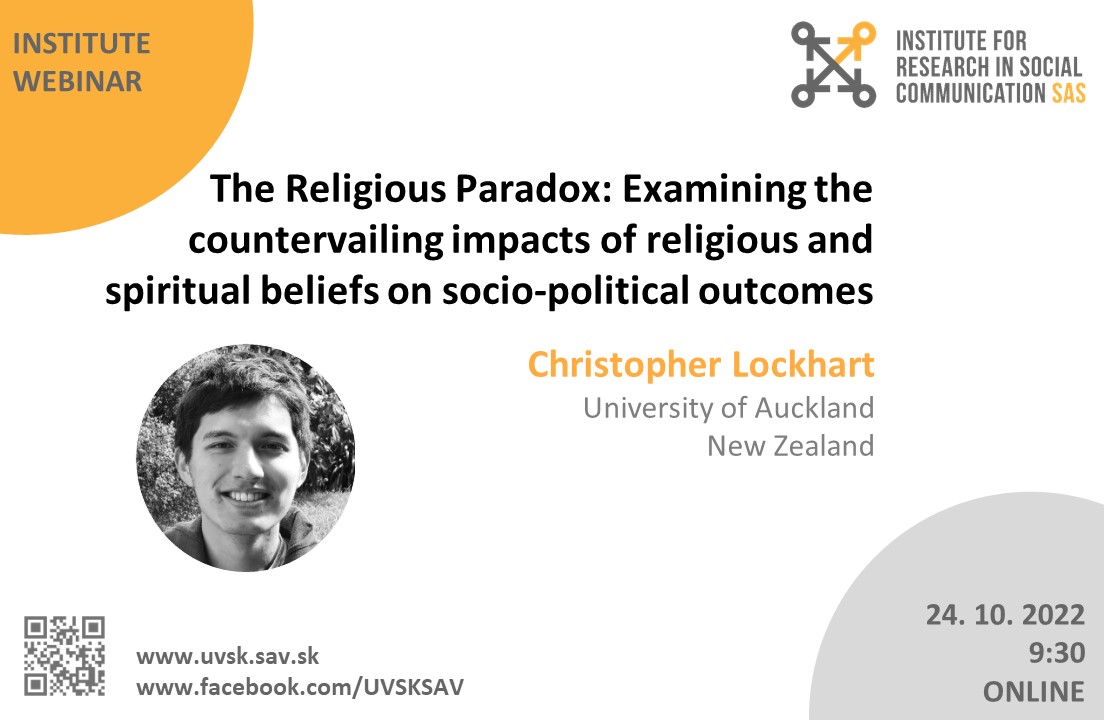Dear colleagues,
We cordially invite you to attend the Institute Seminar entitled “The Religious Paradox: Examining the countervailing impacts of religious and spiritual beliefs on socio-political outcomes”, where we will welcome a guest. Christopher Lockhart will share the results of four studies on religion’s impact on political attitudes. Please feel free to pass this information on to your colleagues.
The seminar will take place online. If you are interested in participating, please fill out the simple form: https://forms.gle/R2PK79BQCyLfjp3s7
On the day of the seminar, you will be sent Zoom meeting access details. The maximum number of participants outside of the institute is 50 persons.
The Religious Paradox: Examining the countervailing impacts of religious and spiritual beliefs on socio-political outcomes
Christopher Lockhart, University of Auckland, New Zealand
Monday 24.10. 2022, 9:30 – 11:00 CET, online
Religious beliefs have often been argued to be universally held across cultures and history, yet their socio-political impacts are often ambiguous and poorly understood. This thesis examines forms of religious identification to address two fundamental gaps in the literature on religion’s impact on political attitudes. The first oversight addressed by this thesis is to identify the temporal ordering of the oft-noted close relationship between religion and authoritarianism. The second gap addressed by this thesis is the countervailing association between religion and socio-political views, thereby demonstrating the plurality of religious identification and how different dimensions of religious belief affect political identification, environmental concern, and attitudes towards gender equality. Through four studies using data drawn from the New Zealand Attitudes and Values Study (NZAVS), I demonstrate that whilst religiosity appears to foster authoritarian attitudes, spirituality correlates with egalitarianism and thus increased liberal political identification and pro-environmental attitudes. Finally, drawing on past work, I suggest that religious collective narcissism—a threat-motivated defensiveness of the positive self-image of one’s religious group—might suppress some of the positive impacts of religious identification on intergroup relations. Collectively, this work provides insight into the multidimensional nature of religion and its countervailing impacts on socio-political attitudes.







